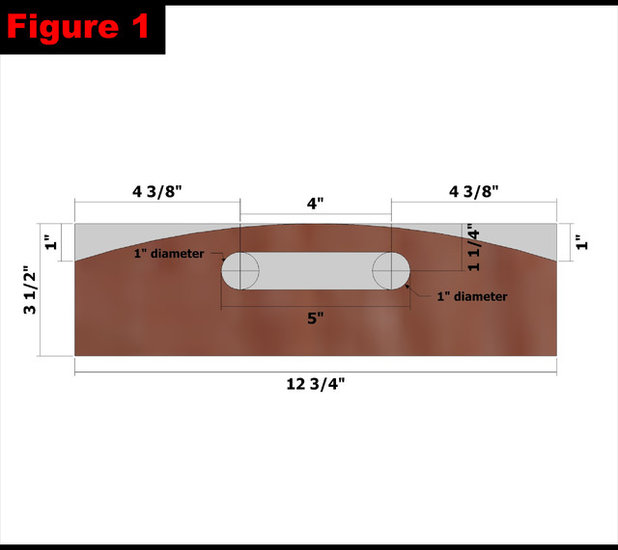Both water- and oil - based polyurethane protect natural wood floors, leaving behind a shiny coating. Depending on where you are in the process of refinishing, you may want to look into some of the new water- based polyurethane options. They have advanced quite a lot in the last few years, and some are starting to rival oil - based for durability, with a fraction of the fumes. The fumes produced by oil based polyurethane are not good for you, but dealing with them for a couple of nights is not going to kill you.
Drying times, odor and cost are negligible factors when deciding whether to use water based vs. The smell will be gone in a week. You’ll live with the look for a decade or more. I am afraid any towels we put in there may end up smelling like polyurethane until the smell goes away.
Water- based polyurethane finishes may contain fewer VOCs than oil - based finishes, in which the VOCs are used as solvents. Most water- based finishes still contain some level of VOCs, however, and all polyurethane products contain diisocyanates. This polyurethane alternative is essentially a plant- based oil combined with a natural hardener. The hardener is responsible for the durable finish. Whether you want glossy or silky matte, this versatile product creates a washable, protective coating for your wooden surfaces.
When working with anything that produces strong fumes , you will need a face mask to protect your throat. Provides long-lasting beauty and protection to any interior wood surface. Among the most durable coatings for wood protection. Ideal for woodwork, furniture, doors, cabinets and floors. Can be used on both finished and unfinished wood.
Acrylic polyurethane floor finish has a lighter appearance and dries faster than oil - based polyurethane Next Project › Find out which finish is the best for you project, water- based or oil based polyurethane. It is an stench like no other, and it is notoriously hard to get rid of. There are basically two types of polyurethane , oil based (solvent borne) and water based polyurethane (water borne). We refinished our 40-year-old hardwood floors TEN weeks ago, and the odor is STILL bad!
The greatest advantage of an oil - based polyurethane is how easily it adds a deep amber warmth to all woods. But their fumes and the slow drying times make them difficult to work with, not to mention the vast quantities of paint thinner it takes to clean up all our brushes and applicators. I doubt you could detect anything - might as well be glass.
My oil polyurethane death hutch - It took months before I could bring it inside to a separate closed room before it stopped making me sick in an. Ok, so staying in the house with polyurethane fumes is definitely out. Oil - based polyurethane enhances the coloring of the wood and gives it a soft glow. Due to their composition, oil - based products are thicker and take longer to dry.

They do emit fumes , so prepare to don a respirator. Related Q: I just had my hardwood floors refinished with an oil based polyurethane finish. We had the floors done while on vacation to avoid the fumes. The floors were finished on a Wednesday and we returned to the house days later on a Tuesday.
It comes in varieties - glossy and satin finish. Water based polyurethane is famous for being low odor and low toxic. Oil vs water based polyurethane. In general, most flooring professionals will tell you that oil based polyurethane is more durable than water borne poly.
That is because most water borne polyurethanes are inferior. HOWEVER, if you are using a top notch bran such as Bona Traffic H this is not true In this case, they are EQUALLY as durable. We are leaning towards an oil - based poly for new oak floors in a new bedroom suite, to be installed and finished by a pro, but I was wondering about the smell and possible toxicity. Our 4-step approach shows you how to apply the varnish successfully.
A good-quality natural-bristle brush, a reasonably dust-free, well ventilated space and some patience are all you need. Finishers compare notes, experiences, and opinions on the comparative durability of water- and oil - based polyurethane topcoats. Another downside of oil - based polyurethane is that if you decide to use brushes, you will have to take time to clean them with a thinner. I used oil based polyurethane and I am concerned that I may have contaminated the coral QT tank in the adjacent room.
I did keep the door closed to the QT room, but that obviously cannot keep the fumes from spreading. If you’re on a budget, that might be the deciding factor right there. Oil and water are famous for repelling one another and not mixing. Luckily, there are ways around this when it comes to applying finishes. Oil based stains contain solvents which typically outgas for months and sometimes years.
The top coat used is water- based but still may contain chemicals that are not safe. They can be either water- based or oil - based , but oil - based urethanes are most likely to contain VOCs. Water- based urethanes – The benefits of these are that they have a low odor, they dry clear, and they dry quickly—you can even apply a second or even third coat on the same day, if necessary.
Polyurethane finishes – These are very common.
No comments:
Post a Comment
Note: Only a member of this blog may post a comment.